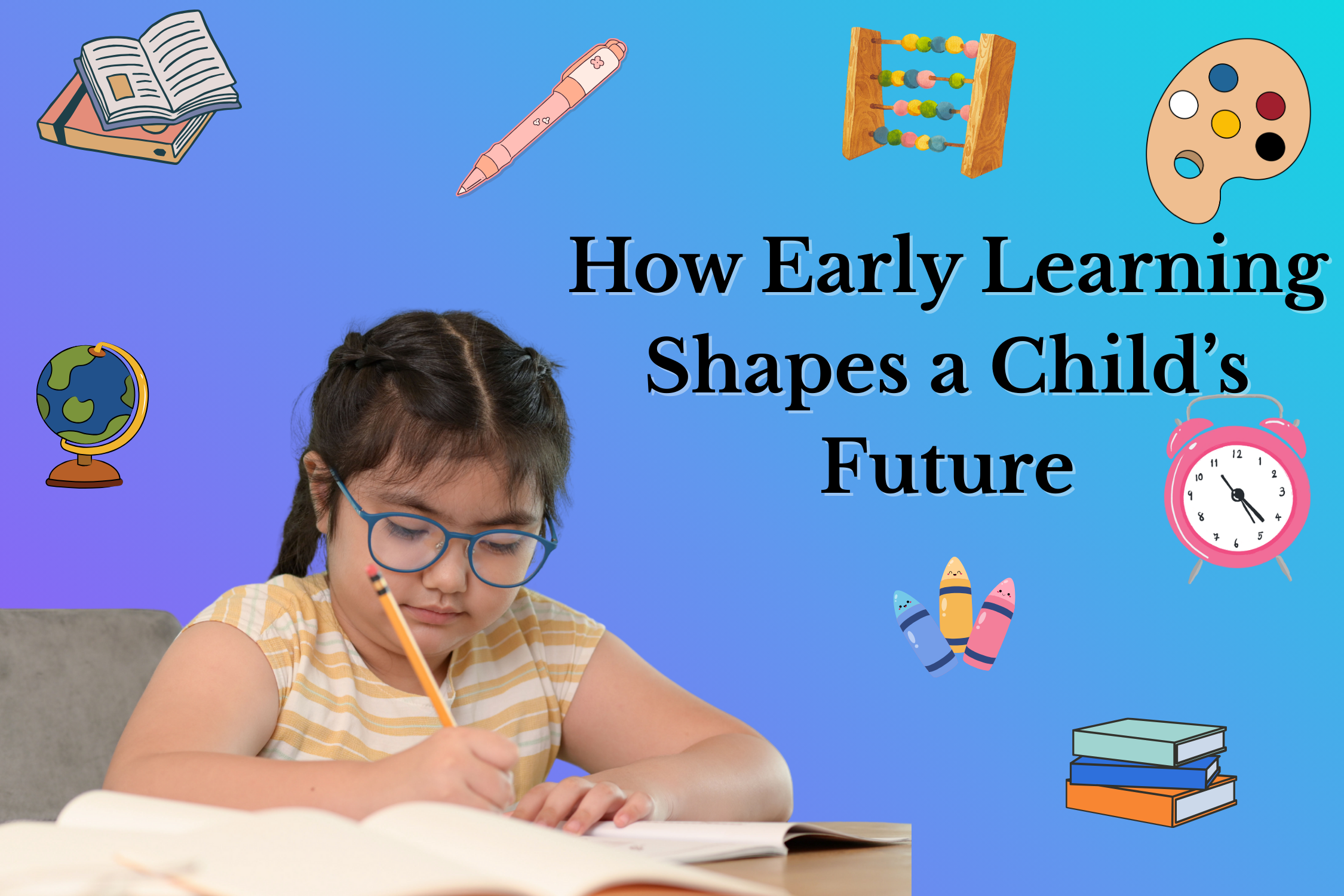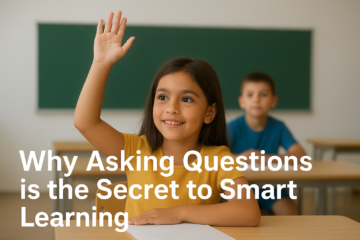Childhood is the most important stage of life. The lessons, skills, and habits a child develops in the early years build the foundation for their entire future. Research and real-life experiences show that early learning plays a big role in shaping a child’s personality, knowledge, and success in life.
In this blog, let’s explore how early learning impacts a child’s growth and future success, explained in simple points.
1. Builds Strong Brain Development
- The brain grows the fastest in the first five years of life.
- Early learning activities like reading, storytelling, and problem-solving games strengthen brain connections.
- A strong brain foundation helps children think better, understand concepts quickly, and remember things easily.
2. Develops Communication Skills
- Early exposure to reading, listening, and speaking improves vocabulary.
- Children who learn early can express themselves clearly and confidently.
- Good communication skills help in school, friendships, and later in professional life.
3. Encourages Curiosity and Creativity
- Young children are naturally curious.
- Early learning gives them chances to ask questions, explore ideas, and find creative solutions.
- This curiosity grows into innovative thinking as they get older.
4. Creates Good Learning Habits
- Children who are introduced to study routines early develop discipline.
- Habits like regular reading, writing, or practicing math prepare them for school life.
- These habits continue throughout life, making them better learners.
5. Improves Emotional Development
- Early learning environments teach children how to handle emotions like joy, anger, or disappointment.
- Activities such as group play, sharing toys, or storytelling help children understand empathy and kindness.
- Emotional strength makes them confident and socially responsible adults.
6. Boosts Social Skills
- Early learning often happens in preschools or group activities.
- Children learn how to share, cooperate, and respect others.
- These social skills are essential for teamwork in school, college, and the workplace.
7. Makes School Transition Easier
- Children who learn early are more prepared when they start formal schooling.
- They understand basic letters, numbers, shapes, and simple problem-solving.
- This reduces fear and stress when entering school and boosts confidence.
8. Strengthens Motor Skills
- Early learning activities like drawing, coloring, building blocks, or writing improve hand-eye coordination.
- Physical activities like running, skipping, or climbing help in gross motor development.
- These skills are important for sports, writing, and daily life activities.
9. Improves Focus and Concentration
- Small learning tasks in the early years teach children how to pay attention.
- Games, puzzles, and reading sessions improve focus gradually.
- Strong concentration helps them do well in academics later.
10. Shapes Personality and Character
- Early learning is not only about academics but also values.
- Lessons of honesty, respect, and discipline learned early stay for life.
- This builds a strong, positive personality and moral character.
11. Increases Problem-Solving Ability
- When children solve puzzles or simple real-life problems, they develop logical thinking.
- Early problem-solving makes them independent decision-makers.
- Later in life, they can face challenges without fear.
12. Encourages Lifelong Love for Learning
- Children who enjoy early learning see education as fun, not pressure.
- They develop curiosity to keep learning new things even outside classrooms.
- This lifelong love for learning helps in personal and professional success.
13. Builds Confidence and Self-Esteem
- Small achievements in early learning, like solving a puzzle or reading a story, boost confidence.
- Children feel proud of their abilities.
- This self-esteem motivates them to take on bigger challenges in life.
14. Reduces Learning Gaps
- Early learning ensures children don’t fall behind in school.
- Students with preschool exposure often perform better than those without it.
- Closing these gaps early prevents struggles in higher classes.
15. Prepares for Future Careers
- The skills developed in early childhood—communication, problem-solving, creativity—are all important in careers.
- Even though jobs are far away, the habits and foundation built early play a role in future professional success.
16. Connects Learning to Real Life
- Early learning often includes practical examples like counting toys, identifying colors in fruits, or learning shapes through objects.
- This makes children realize that education is connected to daily life.
- They see learning as meaningful, not just memorization.
17. Teaches Independence
- Early education helps children do small tasks on their own, like dressing, organizing toys, or finishing assignments.
- Independence builds responsibility and problem-solving skills.
- These qualities make them confident adults.
18. Builds Strong Parent-Child Bond
- Parents who engage in early learning activities—reading together, solving puzzles, or storytelling—create stronger emotional connections with their children.
- This bond gives children a sense of security and motivation to learn.
19. Creates a Positive Attitude Towards Education
- Early learning makes studying enjoyable.
- Children who enjoy learning in their early years rarely develop fear or hatred for school.
- A positive attitude towards education stays with them forever.
20. Shapes a Brighter Future
- All these benefits—confidence, skills, values, and habits—combine to shape a successful future.
- Children who learn early grow into adults who are independent, responsible, and capable of achieving their dreams.
Conclusion
Early learning is not about forcing children to study but about giving them opportunities to explore, play, and understand the world around them. The knowledge and habits they gain in their early years build the foundation of their future success.
Parents, teachers, and tutors should focus on making early learning fun, engaging, and meaningful. Because what children learn in their first few years will guide them throughout their life.




